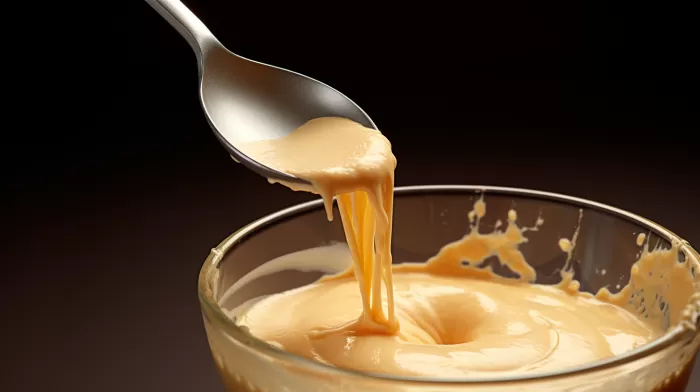Dietary fads are popular, especially those that promise quick and easy weight loss. From eating nothing but salad to snacking solely on grapefruit, these diet trends seem to be all the rage. But there’s a new fad on the rise in Silicon Valley that has many people trading in their forks and knives for a blender and a shaker bottle. This trend involves consuming protein powder mixed with water or milk instead of eating solid food.
Tech workers in Silicon Valley are reportedly turning to these meal replacement drinks in an effort to save time and money in their busy schedules. The concoctions come with names like Soylent, Schmilk, People Chow, and Schmoylent, and typically taste like bland, gritty pancake batter. But despite the questionable taste and even more questionable names, people are increasingly replacing their meals with these drinks.
But just how healthy is this trend? The short answer is: it’s not.
While these meal replacement drinks may be convenient when you’re in a pinch, relying on them too much can be harmful to your health. The primary reason? Natural, whole foods contain essential nutrients and chemicals that can help your body ward off viruses, bacteria, and even cancer. When you consume mostly processed foods, as these meal replacement drinks are, you miss out on these vital nutrients.
Protein powders and meal replacement drinks may also be misleading. Many manufacturers claim their products are packed with vitamins, minerals, fiber, and other nutrients that your body needs. But some protein powders have faced lawsuits over false claims and misleading labeling. In some cases, the products don’t contain as much protein as they state, with other ingredients making up the majority of the product.
When turning to protein powders or meal replacement drinks, it’s crucial to keep an eye on ingredients. Avoid anything with artificial sweeteners or questionable preservatives. Additionally, watch out for drinks with excessive sugar, as they can quickly become nothing more than a glorified milkshake.
If you need a boost of protein on the go, there are other, healthier alternatives. Instead of grabbing a protein powder, try opting for quick and easy sources of natural protein like hard-boiled eggs, yogurt, or even a handful of nuts. These whole foods options provide nourishment and satiety without the added preservatives or questionable ingredients.
Another downside to these meal replacement drinks is the lack of variety in taste. While they might sound unappealing to some, for those who enjoy them, there is a risk of growing bored with the same flavor over time. In addition, consuming the same food source daily can lead to nutrient deficiencies in the long term.
Moreover, the social aspect of dining and enjoying meals with friends and family shouldn’t be overlooked. The simple act of sitting down and eating a meal together has numerous emotional and psychological benefits. Trading in that experience for a protein shake at your desk just isn’t worth it.
In conclusion, while drinking protein and meal replacement shakes might seem like a convenient solution for busy tech workers, it’s not a sustainable or healthy option in the long run. The benefits of consuming whole foods with a variety of essential nutrients far outweigh any time or cost savings that might come from indulging in this latest health fad. Stick to real foods with natural sources of protein, and you’ll not only feel better – you’ll be doing your body a huge favor by providing it with the nutrients it needs to thrive.



